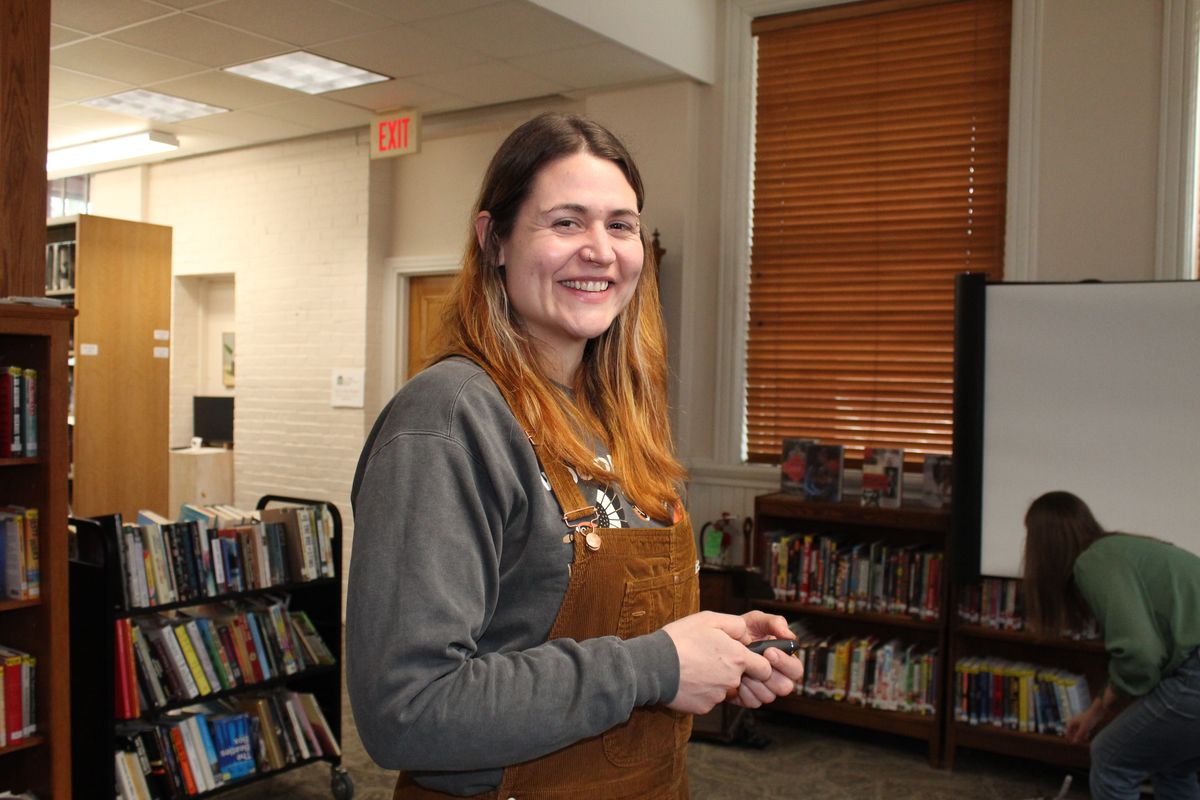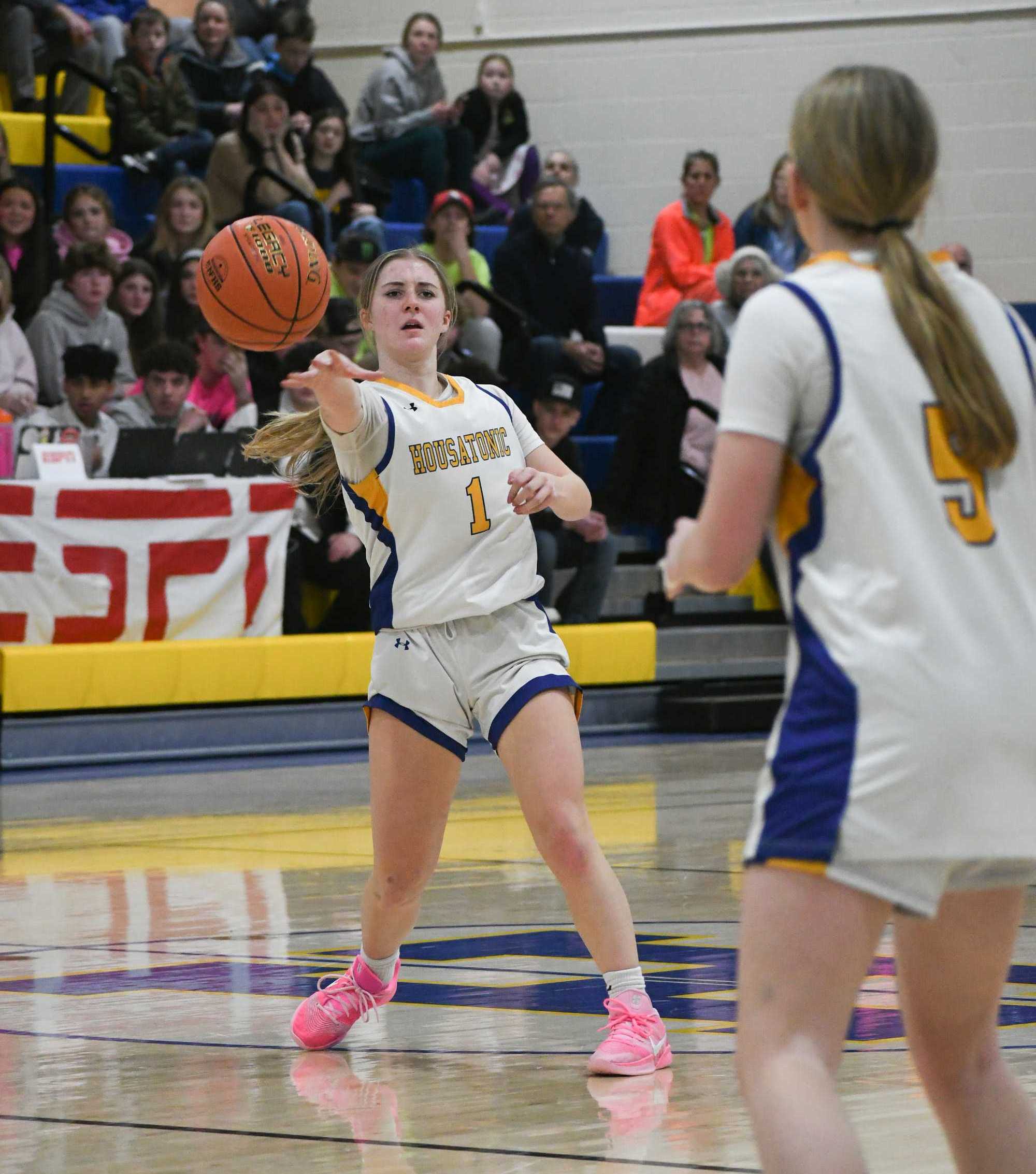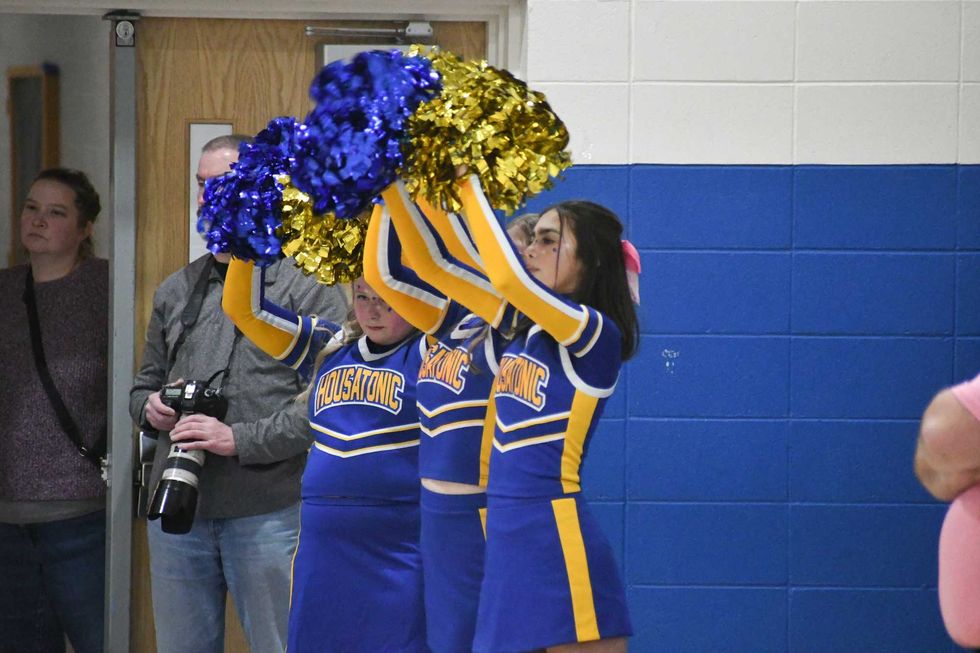Holistic approach to landscaping

Beth Romaker works for Matt’s Lanscaping in Falls Village. She led a talk at Hunt Library March 29.
Patrick L. Sullivan

Beth Romaker works for Matt’s Lanscaping in Falls Village. She led a talk at Hunt Library March 29.
FALLS VILLAGE — Beth Romaker described how to use sound ecological practices and a certain amount of common sense when landscaping your property at the David M. Hunt Library Saturday, March 29.
Romaker works for Matt’s Landscaping in Falls Village and studied forest ecology at the University of Vermont.
Using a project she is currently working on in Hudson, New York, as a template, she outlined how to go about landscaping with a “holistic perspective.”
She discouraged tearing discrete elements, such as a garden, separately from the property and ecosystem as a whole.
The Hudson property has been in use since the mid-18th century, It includes a manmade pond, dug in the 1970s or 1980s, which is completely choked with algae.
The property as a whole is very wet. It has secondary growth first, some serious inclines, and a lot of lawn.
“It’s a lawn and it’s a mess.”
Romaker said the approach starts with extensive site analysis, including the “disturbance history.”
This will tell the landscape team about soil quality, which in turn leads to choices for plants.
Native plants are generally preferred, although Romaker is willing to use plants that are native to adjacent areas such as warmer parts of New York or Pennsylvania, in recognition of climate change.
Site analysis also includes water and how it moves within the system. Questions such as where does the run-off go, or how much erosion is present need to be answered before remedies can be designed and deployed.
Romaker discussed invasive plants and their treatment. She said some invasives can be removed by hand effectively. Others require herbicides, which she said can be used responsibly.
What property owners should avoid is leaving areas cleared without a plan to replace the vegetation.
“Nature abhors a vacuum,” she said. “Something will replace it.”
The Millbrook Garden Club and Millbrook Library are launching a “Garden Matters” series, a free lineup of talks, walks and workshops on eco-friendly gardening presented with Stonewood Farm.Beginning Feb. 21 and running through July, the program highlights local experts sharing practical tips on soil health, regenerative growing, native plants and pollinator habitats.
Sessions include a soil-building workshop with farm managers, a creative seed-starting class led by Jessica Williams of Odd Duck Farm, a pollinator garden walkthrough with designer Andrew J. Durbridge, and a native meadow tour at the Cary Institute guided by president Joshua Ginsberg. All programs are free and open to the public at the library unless noted. Details and schedule updates: millbrooklibrary.org.
Artist Cheryl Heller, who makes eight-foot-tall paintings of song birdswill have an open studio from 10 a.m. to 3 p.m. on Saturday, Feb. 21.
The Ninth Annual Winter Weekend Festival returns to Norfolk, Feb. 21–22, offering a full slate of seasonal activities for all ages. The community celebration features outdoor adventures such as hiking, skiing and wildlife walks, alongside concerts, art shows, workshops, open studios, historic exhibits and family events. Highlights include live music, artist meet-and-greets, a pickleball tournament, stained-glass tours, craft demonstrations and a “Blizzard of Fun” kids program. Many activities are free, with select ticketed workshops. Early-bird events begin Friday evening with a pop-up gallery reception and documentary screening. Visitors can also enjoy special café and bakery offerings throughout the weekend. Organizers encourage guests to check the festival schedule at weekendinnorfolk.org for updates and return this summer for the three-day Weekend in Norfolk celebration July 31–Aug. 2.
Natalia Zukerman opens Stissing Center’s new speakeasy, The Grace Note.
The Stissing Center officially opened The Grace Note on Friday, Feb. 13, a new speakeasy-style venue aimed at turning Friday nights into a weekly home for local and regional talent.
Hidden in the basement of The Stissing Center, The Grace Note certainly has the feel of a speakeasy, with its brick walls, dim lights and fully stocked bar. Executive Director Patrick Trettenero welcomed the first sold-out crowd and said the inspiration for the reimagined venue came from a desire to offer performances that connect audiences with artists in an intimate setting.
The debut performance featured Natalia Zukerman, Compass Arts & Entertainment editor and Stissing Center advisory board member, who will also co-manage booking for the space as it rolls out weekly programming. From the moment she stepped onto the stage, Zukerman held the audience in the palm of her hand, leaving concert-goers hanging on her every word. There were moments of raucous laughter and moments when you could hear a pin drop.
A storyteller at heart, Zukerman wove an introspective thread throughout the night, exploring how connection, art and beauty can exist even amid injustice and a relentless news cycle. Between songs, she offered commentary and her personal reflections, while her lyrics echoed many of the same themes.
The Grace Note will be open every Friday night. For a schedule of upcoming performances and to purchase tickets, visit thestissingcenter.org

Want more of our stories on Google? Click here to make us a Preferred Source.
“This Beautiful Place,” paintings by Torrington artist Suzan Scott exploring the Litchfield Hills and surrounding landscapes will be on view Feb. 12‑March 13 at the David M. Hunt Library, 63 Main St., Falls Village. Opening rception: Saturday, Feb. 21, 5 to 7 p.m. Art talk: Thursday, March 12, 5:30 p.m. Free and open to all.
FALLS VILLAGE — Back-to-back basketball games were played at Housatonic Valley Regional High School Friday, Feb. 13, against rival Lakeview High School.
The evening of excitement began with the girls varsity game and was followed by the boys game. Lakeview won them both with final scores of 46-26 for the girls and 72-36 for the boys.
It was a true rivalry atmosphere inside the Ed Tybursky Gym and cheering sections for both sides were full. In the home crowd, student commentators were situated courtside behind a mock ESPN sports desk.
The girls game was a physical battle with hard fouls from both sides. Athletic Trainer Erica Russell was quick to address injuries including a bloody nose and sprained thumb.

The score was close early on but as time marched on, Lakeview’s girls showed why they have only lost two games this season. Star guard Allie Pape scored a game-high 18 points for Lakeview. Addie Foss scored 11, Christina Barone scored 9, Micaela Rae scored 5, Dorothy Olmstead scored 2 and Alyssa Barone scored 1.
The HVRHS girls were led by Olivia Brooks with 8 points. Victoria Brooks scored 7, Maddy Johnson scored 6, Hayden Bachman scored 2, Carmela Egan scored 2 and Aubrey Funk scored 1.

In the boys game, HVRHS wore throwback jerseys complete with overly baggy shorts that were worn in the early 2000s. Two seniors were out due to injury: Wes Allyn was still recovering from knee surgery and Owen Riemer was in a sling due to a hyperextended elbow.
Lakeview built a lead early on and stayed ahead until the end. The Bobcats were led offensively by Jack Gollow with 35 points. Quinn Coffey scored 9, Chuck Pickert scored 6, Roch Bolton scored 6, Max Guma scored 5, Renaldi Mucka scored 4, Jovany Pirro scored 4, Henry Contadini scored 2 and Connor Aldrich scored 1.
HVRHS was led in scoring by Anthony Foley with 12 points. Anthony Labbadia scored 10, Simon Markow scored 6, Nick Crodelle scored 3, Wyatt Bayer scored 3 and Tyler Roberts scored 2.

After the results, Lakeview’s girls moved into first place in Berkshire League standings with a record of 16-2. The HVRHS girls were in fourth place, tied with Northwestern at 7-10.
For the boys, Lakeview remained in third place with a record of 11-6. The HVRHS boys moved to 4-13 in seventh place.

Want more of our stories on Google? Click here to make us a Preferred Source.

Want more of our stories on Google? Click here to make us a Preferred Source.